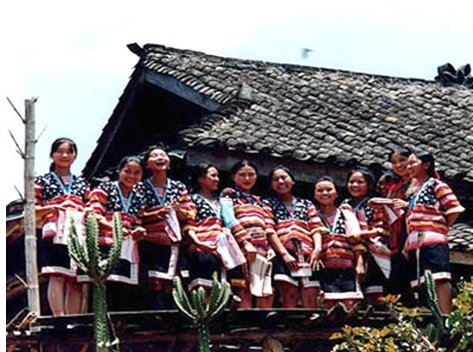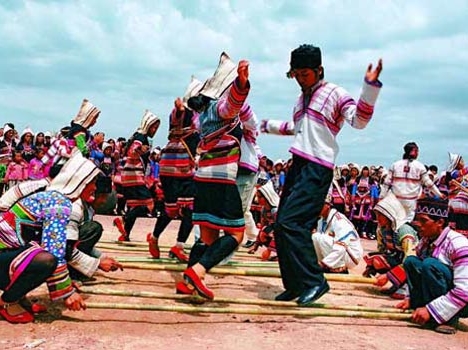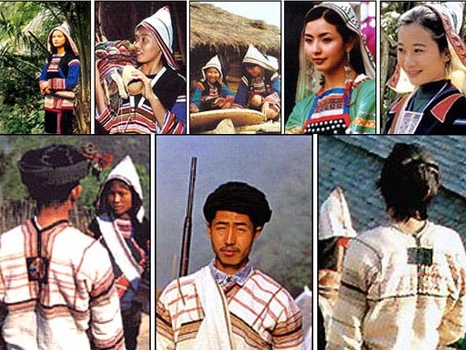

Jino women usually wear collarless jackets buttoned down the front, with the upper sleeves made of black or white cloth while the lower part of cloth in seven colors such as red, blue, yellow and white. Besides, they wear short skirts hemmed with red lace. A piece of foursquare white cloth with each side of 3 inches wide is sewn to the back of the coat and the cloth is embroidered with a round moon pattern. Inside the coat there is bellyband-like corsetry decorated with bright-colored stripes and embroidered with various patterns. Most women wear black short skirts hemmed with red lace, and wrap their calves with black cloth. Women arrange their hair bun behind the head before marriage and on the forehead after marriage. They also wear a pointed cap with its back reaching the shoulders like a cape.

Jino men often wear a white, colorless, short jacket buttoned down the front, and white or blue trousers made of flax or cotton. The back of their jacket is embroidered with patterns of the moon. In the past, men used to divide their hair into three tufts. The one in the middle was said to commemorate the Marquis Wu while the rest two are in memory of their parents.
Both men and women of the Jino ethnic minority go barefoot, and have thick bamboo or wooden sticks plugged into the holes in their earlobes. Those with the largest holes in their earlobes were considered the most beautiful. After the liberation, the practice of keeping three tufts of hair and penetrating earlobes were no longer prevalent. Nowadays, men like to wrap their head with a piece of black cloth measuring more than 30 cm wide and 3 m long.





